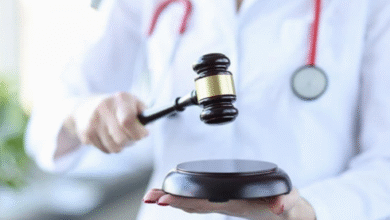When Expertise Matters: How Expert Witnesses Shape the Outcome of Complex Cases

There’s something fascinating about the way courtrooms operate. It’s not just lawyers sparring with carefully chosen words or judges weighing statutes. Sometimes, the most important voice in the room belongs to someone who isn’t even part of the legal profession — the expert witness. These individuals bring specialized knowledge into a space where facts and evidence can otherwise get lost in a fog of legal jargon. And in high-stakes disputes, their input can make the difference between clarity and confusion, persuasion and skepticism, even winning or losing a case.
But here’s the tricky part: finding the right expert isn’t always as simple as flipping through a directory. Every case has its own nuance. Whether you’re dealing with intellectual property disputes, construction failures, financial fraud, or engineering mishaps, you need someone with the exact background, credibility, and ability to communicate with jurors who may have no technical knowledge whatsoever. That’s why attorneys and firms often spend so much time and energy on one task: how to find local expert witness professionals who actually fit their unique case needs.
The Unique Role of Expert Witnesses
It helps to think of an expert witness as a translator. They take complicated concepts — say, how an aircraft component failed mid-flight or the financial indicators of fraudulent bookkeeping — and explain them in plain English for a judge or jury. Their testimony is meant to be objective, rooted in professional knowledge rather than personal bias. The best expert witnesses don’t just recite facts; they tell a story that makes complex matters feel understandable, even relatable.
Beyond clarity, there’s credibility. An expert witness with years of hands-on experience in their field carries weight in ways that textbooks or reports never could. Jurors lean in when a surgeon explains how a medical error could occur, or when an engineer demonstrates why a structure failed. That credibility is why courts allow experts to give opinions, while ordinary witnesses are generally restricted to describing what they saw or heard.
Why Agencies Exist in the First Place
Of course, not every attorney has a list of doctors, engineers, or financial analysts on speed dial. And even when they do, conflicts of interest can arise, or the case might require knowledge in an obscure sub-discipline. Enter the agencies. A technical expert witness agency operates a little like a matchmaker. They evaluate the case, identify the expertise needed, and connect legal teams with professionals who check all the right boxes.
These agencies also vet potential witnesses for qualifications, courtroom experience, and communication skills. After all, it’s one thing to know your field inside and out — it’s another to explain it without putting a jury to sleep. A polished, confident expert can transform dense material into testimony that resonates. The agency’s job is to filter for that balance of technical brilliance and human clarity.
Consulting Beyond the Courtroom
Expert witness involvement often begins long before anyone steps into a courtroom. Attorneys bring them in at the discovery phase to analyze data, review records, or identify flaws in the opposing side’s claims. This early input can help shape legal strategy and even encourage settlement before trial.
For this reason, many firms now rely on expert witness consulting services rather than waiting until the trial phase. Consulting allows experts to examine potential weaknesses, prepare reports, and even coach attorneys on how to frame technical evidence in a way that feels persuasive. By the time a case goes to trial, the attorney isn’t just armed with facts — they’re equipped with a narrative backed by expertise.
The Human Side of Choosing Experts
One often overlooked factor is personality. Jurors don’t just listen to words; they react to tone, demeanor, and authenticity. An expert who comes across as arrogant or condescending risks alienating the jury, no matter how accurate their analysis may be. On the flip side, someone approachable, empathetic, and capable of breaking down ideas into simple terms is far more likely to leave an impression that sticks.
Attorneys, therefore, have to balance technical credentials with human qualities. It’s not unlike hiring a teacher. You wouldn’t just want someone who understands physics — you’d want someone who can explain it in a way that keeps students awake. The courtroom is no different.
Common Fields Where Experts Step In
While expert witnesses can come from nearly any profession, some fields seem to dominate the courtroom:
- Medical experts in malpractice or injury cases
- Engineers and architects in construction disputes
- Financial analysts and accountants in fraud investigations
- IT and cybersecurity professionals in data breach cases
- Forensic specialists in criminal trials
Each of these areas requires not just technical mastery, but also the ability to contextualize details in a way that’s relevant to legal arguments.
What Attorneys Look For
When selecting an expert, attorneys weigh several factors:
- Credentials: Degrees, certifications, and professional licenses.
- Experience: Years in the field and real-world application of skills.
- Courtroom presence: The ability to remain calm, confident, and clear under cross-examination.
- Independence: Experts must be impartial; any whiff of bias can undermine credibility.
Agencies and consulting services often streamline this evaluation process, but ultimately, attorneys look for a partner who strengthens their narrative while standing on an unshakable foundation of expertise.
Final Thoughts: Why It All Matters
At the end of the day, an expert witness isn’t just another cog in the legal machine. They’re a bridge between specialized knowledge and the everyday understanding of jurors who hold the power to decide outcomes. The wrong expert can sow confusion, while the right one can illuminate the truth with clarity and authority.
Whether you’re an attorney gearing up for a complex case or a firm that frequently navigates technical disputes, investing in the right expert witness is less about checking a box and more about giving your case the best possible chance. In a world where evidence alone doesn’t always speak for itself, the voice that translates it can be the one that matters most.

